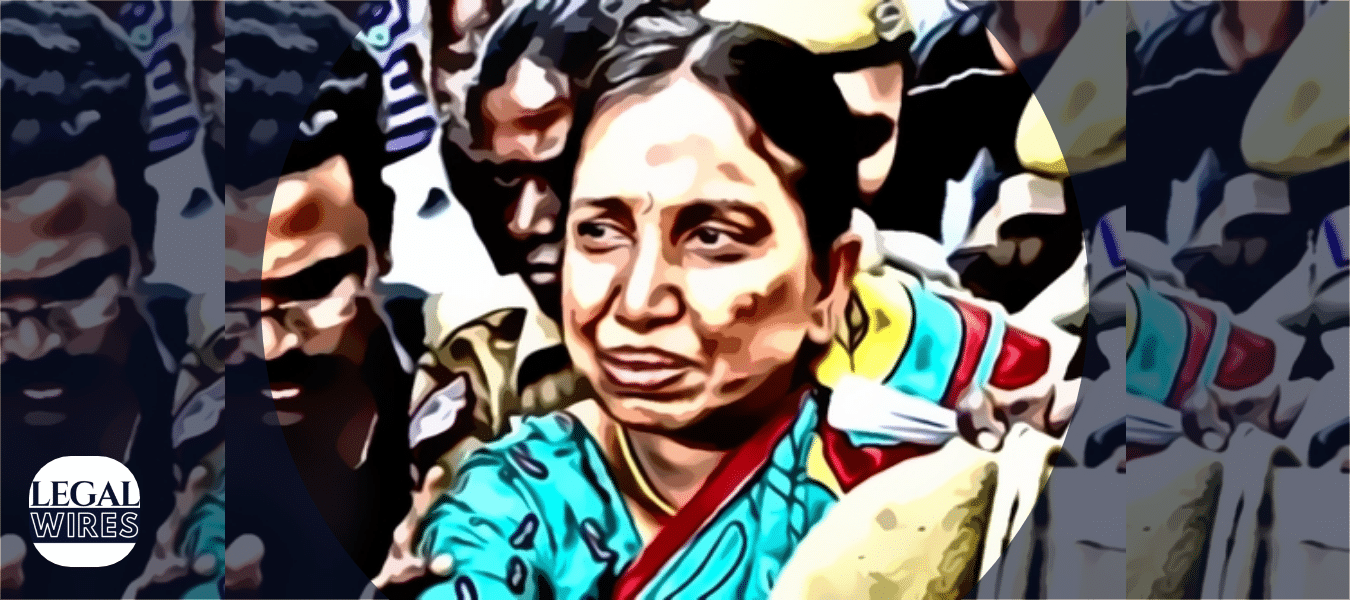Life imprisonment occupies an important place in India’s criminal justice system[2]. An estimated 55.8 percent of India’s convict population is undergoing a sentence of life imprisonment[3].

Nalini Sriharan, who is going through a life term imprisonment in the Rajiv Gandhi assassination case had threatened to kill herself in prison after being accused of harassing another convict, states Tamil Nadu Official.
What is life imprisonment?
People many a time gets confused that what is the time for imprisonment in instances of Life Imprisonment. Life imprisonment implies a jail term for the convict’s entire life, the Supreme Court has held, clearing a misconception on this sentence[1].
Life imprisonment occupies an important place in India’s criminal justice system[2]. An estimated 55.8 percent of India’s convict population is undergoing a sentence of life imprisonment[3].
Section 53 of the Indian Penal Code describes punishments which are to be given after one is proved convict under the Criminal Administration.
The punishments to which offenders are liable under the provisions of this Code are—
First.—Death;
1[Secondly.—Imprisonment for life;] 2 *****
Fourthly.—Imprisonment, which is of two descriptions, namely:—
(1) Rigorous, that is, with hard labour;
(2) Simple;
Fifthly.—Forfeiture of property;
Sixthly.—Fine.
1. Subs. by Act 26 of 1955, s. 117 and the Sch., for “Secondly. —Transportation” (w.e.f. 1-1-1956).
2. Cl. Thirdly omitted by Act 17 of 1949, s. 2 (w.e.f. 6-4-1949).
“It was more like blackmail or a threat. She did not attempt suicide,” remarked, Sunil Kumar Singh, the Chief of the Tamil Nadu Prisons Department
This occurrence took place at the Women Prison of Vellore, where Nalini along with 55 other convicts have been imprisoned for nearly thirty years.
“Nalini threatened to kill herself when the jail was inquiring into a harassment complaint. Another life convict has alleged that Nalini harasses her and wants to be shifted to a different cell. Nalini threatened to commit suicide if the woman was shifted,” Mr Sunil K. Singh said.
Indeed the advocate of Nalini had something else to share. Advocate P Pugalenthi was quoted by news agency ANI as saying that she tried to commit self-homicide after a fight with a jail official.
The lawyer, alleging atrocities by jail officials, pleaded Tamil Nadu state government to arrange transfer of the convict to some-other prison.
The lawyer said he was communicated that the fight started over a grumble by another prisoner against Nalini, a version that he doubted. “At 8:30 pm, the jailer went to Nalini’s cell and enquired about the complaint. During the inquiry, a quarrel took place between the jailer and Nalini. She got upset and attempted to commit suicide,” Mr Pugalenthi told ANI.
“This is the view of the authorities. However, we don’t believe this. She has served the last 30 years in prison and never attempted to take such steps. This is not believable. I think the jail officials had tortured her,” he said, calling for an inquiry.
Nalini Sriharan along with six others were sentenced to life in the matter of 1991 assassination of the former Prime Minister Shree Rajiv Gandhi.
Nalini was sentenced to death for her role in the 1991 assassination of former Prime Minister Shree Rajiv Gandhi by a suicide bomber of the Liberation Tigers of Tamil Eelam (LTTE) during an election rally in Sriperumbudur, Tamil Nadu. Later, the sentence was reduced to life imprisonment after the intervention of the wife of Rajiv Gandhi, Mrs. Sonia Gandhi.
Last year, Nalini was granted parole for a month for her daughter Harithra’s wedding. Her daughter studies medicine in the UK.
Recently, Nalini had requested a court to allow her to make WhatsApp calls to her family in the UK and Sri Lanka. But jail officials told the court that overseas calls are not allowed for convicts and only the centre can decide.
Although the other media reports suggest that amid Covid-19 the prisoners are now allowed to do voice and video calls.
In a landmark case it was being observed by the Apex Court that
“It is also necessary that the Sessions Judge should be informed by the jail authorities of any punitive action taken against a prisoner within two days of such action. A statement by the Sessions Judge in regard to his visits, enquiries made and action taken thereon shall be submitted periodically to the High Court to acquaint it with the conditions prevailing in the prisons within the jurisdiction of the High Court”[4].
But indeed the atrocities against the prisoners by the jail officials can be witnessed even today.
[1] Source Link
[2] This punishment is used as a sentence for more than fifty offences in the Indian Penal Code, 1860. Madhurima Dhanuka, A New Form of Life Imprisonment for India In LIFE IMPRISONMENT AND HUMAN RIGHTS 119, 120 (Dirk Van Zyl Smit & Catherine Appleton, 2016).
[3] Ministry of Home Affairs, National Crime Records Bureau, Prison Statistics India 2015, 2016, 117, available at Source Link.
[4] Sunil Batra vs Delhi Administration on 20 December, 1979; citations: 1980 AIR 1579, 1980 SCR (2) 557





